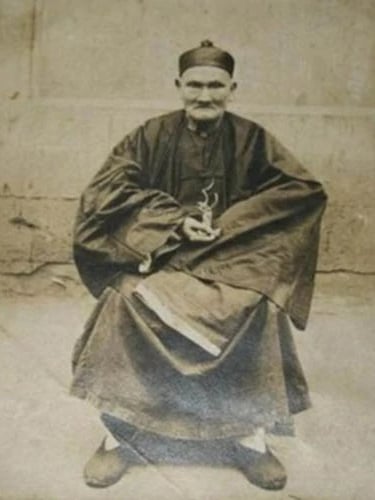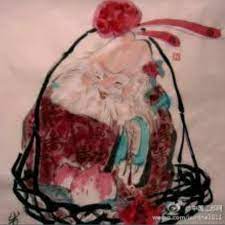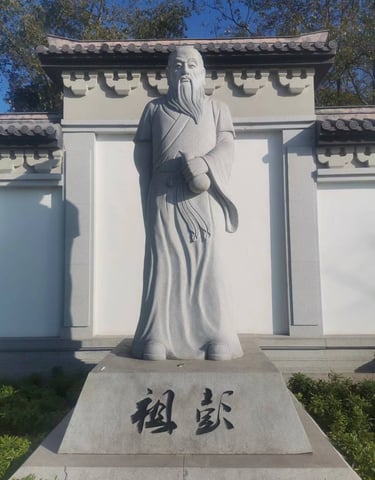At what age can a person live longer? At 256 years or 889 years according to Chinese medicine, do you believe it?
Li Qingyuan, 256 years old
Li Qingyuan (also known as Li Qingyun) was born in 1677 and died in 1933. According to some media sources such as the People's Daily website and Phoenix Net, he is considered the person who lived the longest.
Li Qingyun was born in the 16th year of the Kangxi reign during the Qing dynasty (in 1677) and passed away in 1933, at the age of 256, during the 22nd year of the Republic of China. He was a scholar of traditional Chinese medicine from the Kangxi period until the Republic of China era, and was regarded as a longevity superstar in the world.
At the age of 100, he received a special award from the government for his remarkable achievements in the field of Chinese medicine, and he founded the Qingyun Tang Chinese Medicine Clinic. At the age of 200, he continued to give lectures in different regions. During this period, he hosted many Western researchers. Li Qingyun had 24 wives during his lifetime and left behind 180 descendants. Both The New York Times and Time magazine reported this story. According to calculations based on that era, he was born in the 16th year of the Kangxi reign (1677), spanned the nine generations of Kangxi, Yongzheng, Qianlong, Jiaqing, Daoguang, Xianfeng, Tongzhi, Guangxu, and Xuantong, and passed away during the era of the Republic of China, having lived for 256 years. This is an extremely rare case of longevity in the world.
He relied on the health preservation theory of Puweng, an ancient health expert, and emphasized the four fundamental principles of benevolence, economy, peace, and tranquility for those seeking to preserve their health.
He also addressed points of attention regarding the details of daily life. He emphasized that small things can often cause impatience, which inevitably harms health. He warned people that lack of caution towards heat or cold, walking too quickly, excessive alcohol and sensual pleasures are all detrimental to health, and when the damage is extreme, it can lead to death. Therefore, by following the health preservation principles of the ancestors, one should avoid walking too quickly, staring for long periods, listening intently, sitting until exhaustion, or excessive rest. It is better to dress according to perceived cold, undress according to heat, eat when hungry, drink when thirsty, eat moderately without overeating, and not indulge oneself. It is also necessary to avoid attaching one's mind to emotions of joy, anger, sadness, or happiness, and not let one's mind be disturbed by wealth, fame, honor, or disgrace. This is the path to longevity. Li Qingyun warned by saying, "Hunger, cold, pain, and itching are afflictions that parents cannot relieve, and old age, illness, and death cannot be replaced by a spouse. Only the path of self-love and self-preservation is the key and criterion for health preservation." Furthermore, when a journalist asked him about the secret of his longevity, he replied, "Goji berries and seated meditation."
Chen Jun age of 443.
originally from Yongtai, Fujian province. According to the "Yongtai County Annals": towards the end of his life, his body shrank and resembled that of a small child, and he was carried in a bamboo basket with villagers taking turns to support him. He was nicknamed the "Old man of the vegetable basket."
According to information obtained from the relevant authorities in the annals of Yongtai County, in the 13th year of the Qianlong era of the Qing dynasty, the "Yongtai County Annals" in 12 volumes mention Chen Jun, also known as Ke Ming. He hailed from Tangquan Village (currently Tangcheng Village, Wutong Township, Yongtai County) in the mountainous region of Yongjia, Fujian province. He was born during the Xinchou year of the reign of Emperor Xizong of the Tang dynasty (881 AD) and passed away during the Jiazi year of the Taizhong era of the Yuan dynasty (1324 AD), at the age of 443.
Chen Jun was an upright man who loved doing good for his community, earning him the respect of the residents. In his old age, he was no longer able to provide for himself, and "having no children or descendants to support him, the villagers took turns in feeding him." As the old man continued to age, his body gradually shrunk, and he became smaller and smaller, "resembling a small child," making his movements very difficult.
Therefore, the villagers wove a large bamboo basket in which they placed the old man, and they carried him in turns at the entrance and exit of his house. This is how the residents nicknamed him the "Old man of the vegetable basket." After Chen Jun's passing, the villagers erected a statue in his memory in the Tangquan Temple, which they called "Little Pengzu" (Pengzu being a legendary figure who was said to have lived over 800 years).
The achievements of Chen Jun were engraved on a wooden tablet, preserved from the Yuan dynasty to the Qing dynasty. Reaching the age of a hundred is already remarkable, but living up to 443 years, like Chen Jun, nicknamed "Little Pengzu," is truly extraordinary.
The story of Chen Jun, known as the "Old man of the vegetable basket," and his legend, are still widely spread in the Yongtai County region to this day.
Peng Zu
The dates of birth and death are unknown, but according to Ge Hong's book 《Biographies of Immortals》, he lived during the time of Emperor Yao (from 2447 BC to 2307 BC) and during the Yin and Shang period (from 1600 BC to 1046 BC).
Among the immortals of Taoism, Pengzu is famous for his longevity. Peng Zu is his surname, and his given name is Keng. He is a descendant of Emperor Zhuanxu and the son of Lu Zhong.
According to legend, when he was a great scholar of the Yin dynasty, he was already over seven hundred years old, yet he showed no signs of aging. He regularly consumed powdered mica, tortoiseshell, and powdered deer antlers. He was also skilled in the arts of the bed, mastering techniques of guiding and circulating qi. He passed on his knowledge to female gatherers, King Yin, and others. Later, he traveled throughout the country before ascending as an immortal. As he had been the lord of Pengcheng during the reign of Yao and had exceptional longevity, he was considered the ancestor of the Taoist path and respectfully called "Peng Zu."
Due to Peng Zu's longevity and his expertise in intimate techniques, many later works were attributed to his name. For example, in the 《Bao Pu Zi Xia Lan》 there is mention of the 《Jing de Peng Zu》 In the 《Sui Shu - Jing Ji Zhi》 there is discussion of the 《Sexual Cultivation of Peng Zu》, In the 《Xin Tang Shu - Yi Wen Zhi》, there is reference to the 《Sexual Cultivation of Peng Zu》, and so on. These texts have long been lost. From excerpts of medical books, such as the 《Ten Questions》 and the 《Prescriptions from the Heart》, excavated from the Mawangdui tomb, we can get a general idea of his principles. These contents contain reasonable elements and have become an important component of ancient intimate medicine.
Modern people find it hard to believe Peng Zu's age. Many texts on the internet claim he was actually 140 years old. The reason given is that calculations were different in the past: a year was equivalent to 60 days. If that were the case, then the 140 years during which "He lost forty-nine wives and fifty-four children" could not be explained. In reality, in Chinese history, there are many people older than 800 years, which remains just as inexplicable.
You might also be interested in the article below :














